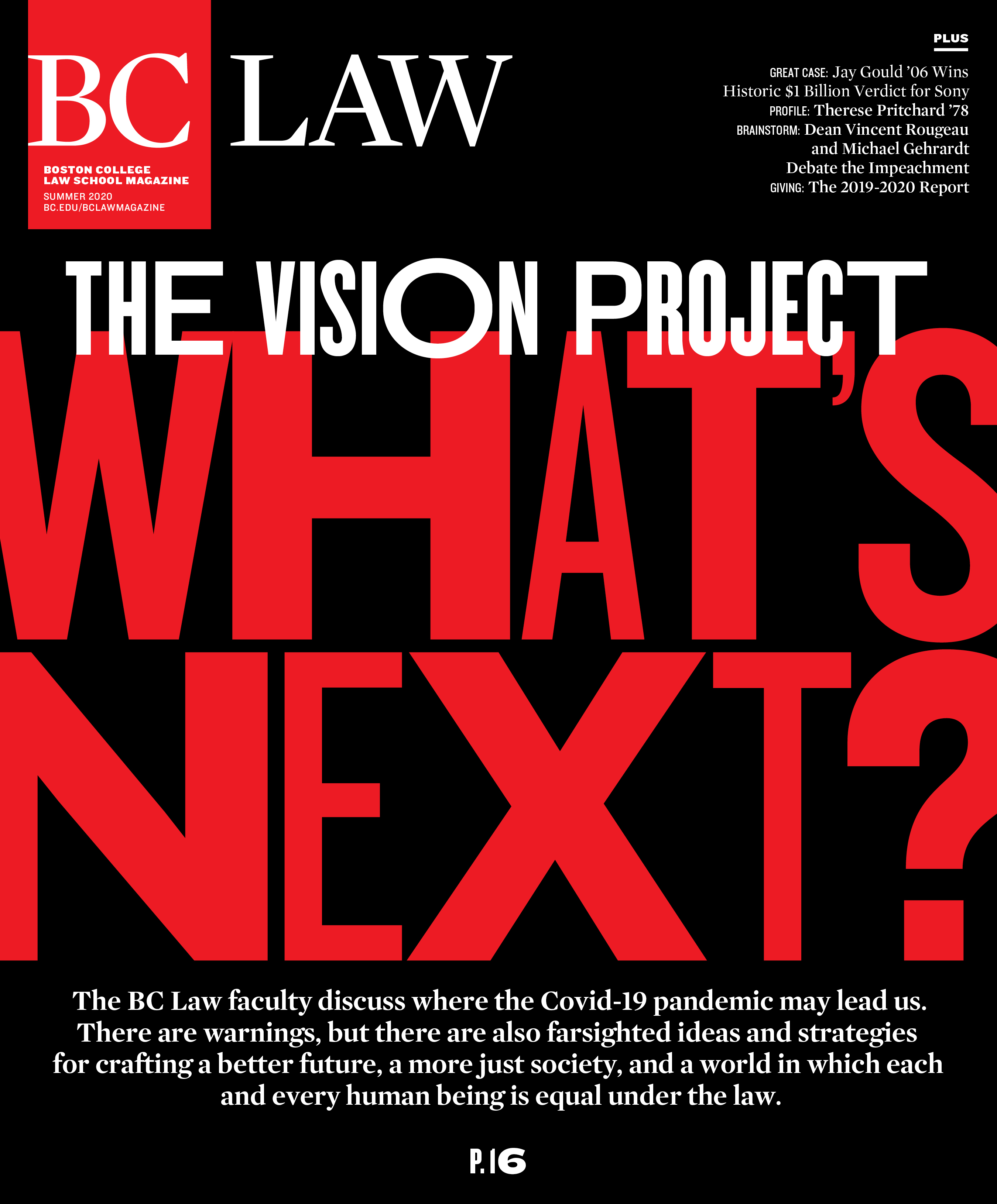
Professor Natalya Shnitser: Employment Benefits. The coronavirus pandemic has shone a harsh light on the limits and inequities of existing paid leave policies for US workers. As social-distancing requirements, school closures, and stay-at-home orders became necessary, millions of workers, particularly those employed by smaller businesses, the lack of paid leave prevented workers from staying home if they became sick or needed to care for sick family members. While Congress responded with new temporary requirements for emergency paid sick leave and paid family and medical leave for businesses with fewer than 500 employees, the effectiveness of these provisions, particularly in light of the exemptions provided in subsequent regulatory guidance, remains to be seen.
At the same time, and in the midst of a public health crisis, millions of Americans have not only lost their jobs, but also their employer-sponsored retirement benefits and health insurance. For such workers and their families, continuation coverage under COBRA, if it is available, may not be affordable, while the ability to obtain health insurance coverage provided by the Affordable Care Act varies significantly across states.
The loss of jobs and of health insurance exacerbates longstanding inequality in the US, with black and Hispanic workers especially hard hit by pandemic-related job losses. As of June, the unemployment rate among African Americans was 16.8 percent, and the unemployment rate among Hispanics was 17.6 percent, while the unemployment rate among whites was 12.4 percent.
Meanwhile, as millions face financial hardships because of the pandemic, Congress has made it easier for Americans to take money from their retirement savings to cover current expenses. While the immediate needs are undoubtedly dire, the Congressional response may undermine retirement security in the long run.
I’m hoping the pandemic and the recent protests over systemic racism can catalyze meaningful reforms, including reforms that address disparities in income and wealth at all stages of life. Recent research from the Boston College Center for Retirement Research (CRR) documents the racial inequality in retirement wealth: In 2016, for example, the typical black household had 46 percent of the retirement wealth of the typical white household, while the typical Hispanic household had 49 percent. The pandemic is likely to exacerbate these disparities, thus making efforts to critically examine and reassess the US retirement system—including employer-sponsored retirement benefits, individual savings, and Social Security—all the more urgent.

Professor Patricia McCoy: Improving Consumer Resilience. Congress, in the new CARES Act, has responded aggressively in appropriating money for the stimulus checks that went out to citizens. The program not only helps families, it also supports consumer demand, and therefore the larger economy.
I also applaud Congress for increasing unemployment benefits—by initially extending the length of the benefits, increasing their amount by $600 weekly, and extending the benefits to gig workers such as Lyft and Uber drivers. That was good, but the rollout has been problematic. For one thing, the number of applicants was so high that state unemployment offices couldn’t process applications quickly enough. In addition, some states—Florida is a poster child for this—imposed prerequisites for unemployment benefits that many people could not meet. Meanwhile, hundreds of thousands of unemployed people can’t pay their mortgages and rents. They’re going hungry, which accounts for the huge lines at food pantries. One thing this points up is the substantial minority of Americans who lack emergency savings. When they lose their jobs, they run out of money quickly.
To address these problems in the long term, we need to focus on improving the financial resilience of households.
First, we can improve our broken system of unemployment insurance. I would have a uniform set of federal requirements that states couldn’t alter and figure out a way to process claims faster. Second, we need to raise the wages of low wage workers, many of whom are black and minority, which would allow them to have a financial cushion to fall back on in a crisis. Third, we should consider mandating loan clauses that provide for debt relief in a national crisis. Finally, we should consider a system of federal business insurance for catastrophes like the pandemic. The private insurance industry can’t underwrite widespread catastrophes, so the federal government should step in.

Professor Shu-Yi Oei: The Impact on Financial Policy. One thing that has struck me about the economic and financial policy responses to the pandemic is the degree to which the initial US legislative response has been shaped by our underlying political backdrop and prior institutional choices. For example, the $1,200 stimulus checks provided for in the CARES Act were delivered through the tax system, in part because that’s one of the best information sources we have on individual financial situations.
Another example: Many of our social insurance and safety net provisions such as health insurance and the earned income tax credit have been tied to work. So, somewhat predictably, legislators have resisted broad-based income support programs and grants as a way to manage the public health crisis.
On the whole, policymakers, both federal and state, have done a poor job of managing the public health crisis. I suspect that—in part because it’s hard to appreciate the seriousness of data presented in abstract numbers, and in part because health and economic impacts have disproportionately been felt by racial and ethnic minority groups, in particular by black and African American and Hispanic/Latino persons—the salience of the public health threat is not as high as it could be among broad segments of the public and policymakers. Thus, we have not seen a strong enough commitment to tackling the crisis.
This is unfortunate not just for those hardest hit but for all of us, because of the many longer term risks that the pandemic presents. We’re already seeing a significant reallocation between economic sectors, as some industries are devastated by the pandemic while others thrive. This could mean a significant employment shock for workers in adversely affected sectors. We could see businesses with monopoly characteristics, such Amazon and Google, becoming even more powerful.
We can respond effectively by boosting social and economic equity through a well-designed social safety net, including more investment in public health, education, and infrastructure, and more commitment to responsible leadership and national preparedness for future pandemics and other crises. We can also invest in worker retraining. But longstanding political and institutional constraints may lead to less-than-perfect social insurance and safety net design.
We need to take these challenges seriously because policy inaction or poorly designed policies could exacerbate emerging shocks and associated inequalities.
To read other pieces in this issue’s The Vision Project, click here.



